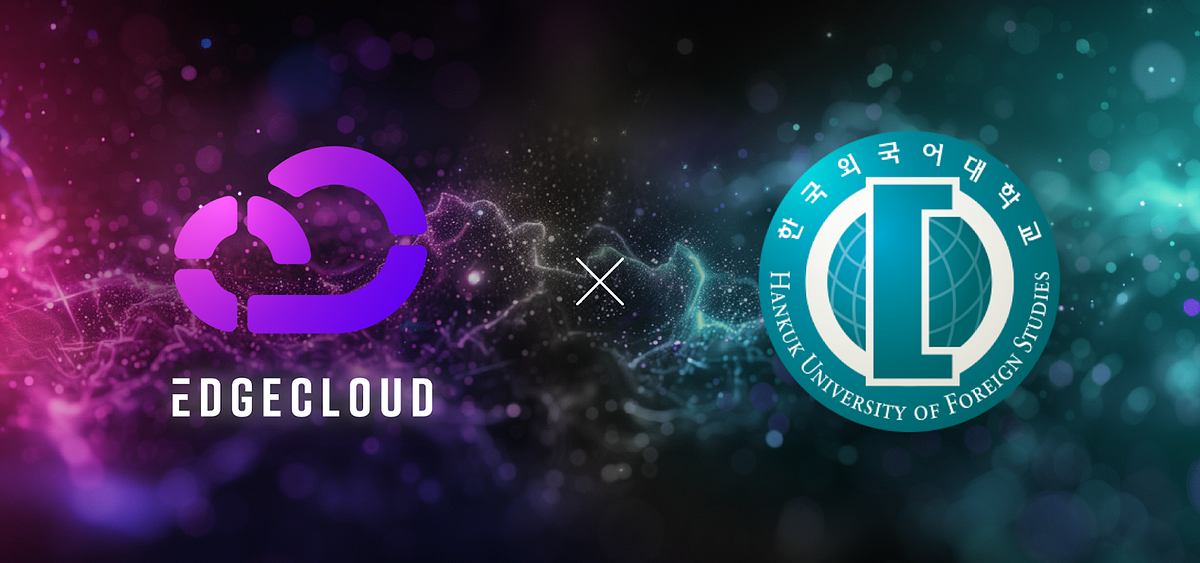Latest DePIN News

a year ago
Empowering Individuals Through Health Data Ownership with HealthBlocks
In the digital age, health data is increasingly recognized as a vital asset, yet it is often controlled by third parties without the individual's consent. HealthBlocks aims to change this paradigm by advocating for data ownership, allowing individuals to reclaim control over their health information. The value of health data lies in its ability to provide insights into personal health trends, enabling preventative care and wellness strategies. However, the current system often benefits large corporations at the expense of individuals, creating an imbalance that HealthBlocks seeks to rectify.
HealthBlocks envisions a future where individuals not only own their health data but also have the autonomy to share it with researchers and healthcare providers, all while being rewarded for their contributions. The HealthBlocks V1 app introduces features like Activity Pools that encourage users to engage in healthy activities and build a comprehensive health profile. This profile, enriched by data from wearable devices and health apps, can be securely shared with third parties, ensuring that users maintain control over their information and privacy.
As artificial intelligence and machine learning continue to advance, the importance of secure and user-controlled health data will only increase. HealthBlocks is committed to creating a transparent ecosystem where individuals are both the owners and beneficiaries of their health data. By fostering a movement that prioritizes personal empowerment and collective health, HealthBlocks is paving the way for a future where health data is a tool for positive change. Join the HealthBlocks V1 waitlist and be part of this transformative journey towards a healthier society.

a year ago
Crypto Venture Capital Resurgence: Key Projects to Watch
The cryptocurrency market is experiencing a significant resurgence, with venture capitalists predicting Bitcoin could soar to $88,000. This optimism is largely fueled by the stabilization of the market and the emergence of new projects in decentralized finance (DeFi) and decentralized physical infrastructure networks (DePIN). As of August 2024, crypto venture capital has raised an impressive $2.2 billion across 24 funds, indicating a robust recovery from previous downturns. Factors contributing to this revival include the market cap reaching 93% of its previous peak, increased institutional adoption from major financial players, and the maturation of investments made during the 2020-2022 boom, which are now presenting new opportunities for investors.
Among the notable projects gaining traction are Base, EigenLayer, and SolLayer, which are reshaping the DeFi landscape. These projects are attracting midsized venture funds, signaling a shift from the smaller funds that characterized the early days of crypto. However, larger VC megafunds are still facing challenges due to high valuations and deployment difficulties. The outcome of the upcoming US presidential election may influence these trends further.
Three standout projects to watch in the DeFi/DePIN space include Theta, BitTorrent (BTT), and World Mobile Token (WMT). Theta leverages peer-to-peer blockchain technology to decentralize video streaming services, promising high-quality streaming without buffering. BitTorrent, originally a sensation in 2019, continues to offer utility through its token, incentivizing users to share files. Lastly, World Mobile Token supports a blockchain initiative aimed at connecting underserved populations, rewarding participants in its ecosystem. As we approach 2025, the crypto funding landscape appears poised for a vital resurgence, instilling optimism across the sector.

a year ago
Exploring the Onocoy GNSS DePIN Project: A Guide to Setting Up Your Own Base Station
Onocoy is a groundbreaking GNSS DePIN project that invites users to adopt a "bring your own" hardware model. This approach allows individuals to purchase their own base station, set it up, and contribute to Onocoy's correction stream. The advantages of this model are clear: users can utilize their own data streams, delve into the intricacies of Positioning, Navigation, and Timing (PNT), and enhance their understanding of GNSS technology. However, for those unfamiliar with the technical aspects, setting up a personal station can be daunting, requiring a bit of effort and knowledge to maximize rewards.
To get started, users need to acquire a base station, such as the SparkFun RTK Mosaic X5. The installation process involves placing the antenna securely on the roof and ensuring a stable connection using Power over Ethernet (PoE). While this may require some physical adjustments, such as cutting holes for cables, the end result is a reliable setup that can effectively collect signals and provide RTK correction streams. Once the physical deployment is complete, users can connect to their local IP address to initiate the basic setup of the Mosaic, following the guidance provided by SparkFun.
After establishing an Onocoy account and connecting the RTK stream to the network, users can monitor their station's performance through the Onocoy console. The initial observations indicate that the SparkFun setup is highly competitive compared to other local stations. However, potential contributors should assess the necessity of their station in a saturated deployment area, especially if their primary motivation is to earn Onocoy tokens. Utilizing the Estimator tool on the Onocoy Explorer can provide insights into potential earnings, making it easier for users to make informed decisions about their contributions to the network.

a year ago
Ambient Deploys Blockchain-Based Air Quality Sensors in Los Angeles
Ambient, the largest distributed network for environmental monitoring, has announced the successful deployment of blockchain-based air quality monitoring sensors in Los Angeles’ Japanese Village Plaza (JVP). This initiative aims to enhance the environment and well-being of the area, which attracts over 5,000 visitors daily. According to Ambient's CEO, Luca Franchi, the project highlights the growing importance of air quality awareness among consumers and businesses, while also promoting incentive-based behavior to drive better insights and foster a healthier experience for all.
Historically, air quality monitoring has been a costly endeavor, primarily managed by government agencies and large corporations. The limited number of locations being tracked in Los Angeles underscores the need for more comprehensive monitoring solutions. With the World Health Organization reporting over seven million premature deaths globally due to air pollution, effective monitoring is essential to address health risks associated with poor air quality. The deployment at JVP not only improves the quality of life for its visitors but also serves as a model for broader applications in urban centers.
Ambient, in collaboration with Parami, is deploying Kaiterra Sensedge Mini sensors across 30 retailers in JVP, providing real-time data on temperature, humidity, particulate matter, and more. This innovative approach leverages blockchain technology to record data on the Solana Blockchain and offers token-based incentives for participants. By investing in Ambient tokens, participants can benefit from data sales and commercial activities derived from the network, driving meaningful change and innovation in environmental monitoring.

a year ago
CUDOS and Fetch.ai Merger: Final Phase Approaches
The CUDOS merger with Fetch.ai ($FET) is entering its final phase as part of the ASI Alliance, following successful tests on the Dorado testnet. The CUDOS testnet was halted two weeks ago, paving the way for significant upgrades this week. Key events include a software upgrade for the CUDOS Network, which will temporarily halt the CUDOS chain, and a corresponding upgrade for the Fetch.ai network that will integrate all CUDOS accounts into the Fetch.ai ecosystem. Two governance proposals will be initiated on each network, and token holders are encouraged to participate in the voting process from October 22 to October 27, 2024. The CUDOS mainnet is set to halt at block height 12,385,627 on October 28, 2024, with the Fetch.ai mainnet upgrade following shortly after.
As a CUDOS token holder, no action is required on your part during this transition. The migration of your CUDOS tokens to FET will be handled automatically through the software upgrades. Your new FET balance will reflect in the same account where your CUDOS tokens are currently held. However, it is essential to keep your private keys secure post-merger. All new FET tokens will be subject to a three-month vesting schedule, during which they can still earn rewards through delegation. Current CUDOS Validators are largely migrating to ASI, ensuring that your delegations remain intact.
Looking ahead, the merger signifies a new chapter for CUDOS and Fetch.ai, combining their strengths to create a more robust decentralized network. The transition is not just a technical upgrade but a strategic move towards greater innovation and sustainability within the blockchain space. The CUDOS community's support has been invaluable, and as the merger unfolds, there is a palpable excitement about the future possibilities that lie ahead. Together, CUDOS and Fetch.ai are poised to achieve remarkable milestones in the blockchain ecosystem.

a year ago
Theta Labs Partners with Hankuk University to Advance AI Research
Theta Labs has announced a significant partnership with Hankuk University of Foreign Studies (HUFS), marking the latter as the newest customer of its EdgeCloud AI platform. This collaboration comes on the heels of Theta's growing influence in the academic sector in South Korea, where institutions such as Korea University, Seoul Women’s University, KAIST, and Yonsei University have already integrated Theta's infrastructure to enhance their AI research capabilities. The partnership will enable LAB HAI at HUFS, under the leadership of Professor Ikbeom Jang, to utilize Theta's scalable EdgeCloud platform for various advanced projects, including LLM-based multimodal data training and biomedical data compression.
Professor Ikbeom Jang, who oversees the computer cluster at HUFS, expressed enthusiasm about the partnership, highlighting the potential of Theta EdgeCloud to significantly boost their multimodal medical AI research. The use of high-performance NVIDIA H100 GPUs will facilitate a wide range of AI applications in healthcare, thereby enhancing Korea's competitiveness in AI technology. Professor Jang's expertise in artificial intelligence and deep learning, along with his previous experience at Harvard Medical School, positions him and his team to make substantial contributions to the field, as evidenced by their recent publications and research grants.
This multi-year agreement underscores Theta Labs' commitment to supporting AI research by providing decentralized GPU resources to esteemed institutions like HUFS. With over 33,000 students, HUFS is poised to leverage Theta’s advanced technology to drive innovation in healthcare AI, particularly in areas such as medical imaging and disease prediction. Mitch Liu, co-founder and CEO of Theta Labs, emphasized that this partnership is a pivotal step in expanding the application of decentralized computing in academia, positioning Theta as a leader in AI computing solutions in the region.

a year ago
Trump Family's Crypto Venture Raises Concerns Amid Political Scrutiny
Donald Trump’s family-run crypto venture, World Liberty Financial, has recently come under scrutiny following the release of a 13-page document detailing its goals and token allocation. The 'World Liberty Gold Paper' reveals that the Trump family will receive a staggering 22.5 billion non-transferrable governance tokens ($WLFI) and 75% of the net protocol revenues. This allocation raises eyebrows among investors and supporters, as it suggests a potential profit of $337.5 million for the Trump clan, assuming a token price of 1.5 cents. Critics are concerned about the vagueness of the token allocations and the fact that these terms are subject to change, leading to accusations of possible scams.
Despite the ambitious goals of World Liberty Financial to challenge traditional banking systems and provide users with more financial freedom, the initial response to the $WLFI token has been tepid. Since its launch, only 917.80 million tokens, worth approximately $137,000, have been sold out of the 20 billion available. This lack of demand indicates that many investors, including Trump supporters, may be skeptical about the platform's sustainability. Furthermore, the Gold Paper explicitly states that neither Trump nor his family holds any legal responsibilities regarding $WLFI or the venture itself, which adds another layer of concern for potential investors.
In addition to the controversies surrounding Trump’s crypto project, Vice President Kamala Harris has also faced criticism for her proposed crypto regulations, which appear to focus exclusively on black men. Her announcement has sparked mixed reactions, with some praising her openness to crypto while others argue that her approach is discriminatory. JD Vance, Trump’s potential running mate, has countered Harris's stance, asserting that all individuals, regardless of race, desire the same opportunities in the crypto space. The juxtaposition of these two political figures highlights the ongoing need for equitable regulations in the US crypto market, free from self-serving agendas.

a year ago
Flux AI vs MidJourney: The Battle for Artistic Freedom
In the evolving landscape of AI-powered art generation, two platforms, Flux AI and MidJourney, have emerged as key players, each with distinct philosophies and functionalities. Flux AI, developed by ex-Stability AI members, champions a censorship-free environment, allowing artists to explore their creativity without restrictions. This open-source platform offers three models—Schnell, Dev, and Pro—catering to various user needs, from quick image generation to high-quality outputs. In contrast, MidJourney is known for its polished visuals but imposes strict content guidelines, limiting the types of images that can be created, particularly those that are violent, explicit, or politically charged.
The recent upgrade to MidJourney's v6.1 algorithm has enhanced its image quality and coherence, addressing previous issues like the notorious "weird hand" problem. However, despite these improvements, the platform's stringent censorship policies remain a significant drawback, potentially stifling artistic expression. On the other hand, Flux AI's no-censorship policy empowers creators to tackle complex themes and push artistic boundaries, making it a compelling choice for those seeking creative freedom. The pricing models further highlight the differences, with Flux AI being free for users who run it on their hardware, while MidJourney operates on a subscription basis, starting at $10 per month.
Ultimately, the choice between Flux AI and MidJourney boils down to individual priorities. For artists who prioritize convenience and high-quality visuals, MidJourney may be the preferred option. However, for those who value unrestricted creative expression and the ability to explore any subject matter, Flux AI stands out as the clear winner. As the debate over censorship and artistic freedom continues, these platforms represent a broader cultural movement advocating for the right to create without limitations.

a year ago
Arthur Hayes Acquires 116.6 Million Aethir Tokens Amid Market Fluctuations
Arthur Hayes, the founder of BitMEX, has recently made headlines in the cryptocurrency world by acquiring a substantial amount of Aethir (ATH) tokens. He purchased 116.6 million ATH tokens, valued at approximately $7.62 million, at an average price of $0.065 each. This acquisition follows his earlier decision in September to liquidate his holdings in Pendle ($PENDLE), raising questions about his current investment strategy and market outlook for ATH.
In a notable move, just an hour ago, Hayes transferred 41 million ATH tokens worth around $2.18 million. Of these, 36 million tokens were sent to the Bybit exchange, while 5 million were directed to OKX. This offloading indicates a strategic decision by Hayes to reduce his exposure to ATH, reportedly at a loss of $2.2 million. Despite this transfer, he still retains a significant holding of 75.6 million ATH tokens, valued at approximately $4.16 million, reflecting a loss of around $1.22 million based on the current market price of $0.054.
Aethir operates as a decentralized real-time rendering network, aiming to enhance cloud infrastructure and improve content accessibility within the Metaverse. The token currently boasts a market capitalization of $210 million and is part of the Decentralized Physical Infrastructure Networks (DePIN) sector. As the ATH market continues to fluctuate, it remains uncertain whether Hayes will maintain his current holdings or make further adjustments in the future. Investors are advised to conduct thorough research before making any investment decisions in the volatile cryptocurrency landscape.

a year ago
AI Tokens Surge Amid Anticipation of Bitcoin Bull Run
As Bitcoin approaches the possibility of reaching a new all-time high (ATH) by the end of the year, the cryptocurrency market is buzzing with anticipation of an impending bull run. Despite this excitement, the altcoin season has yet to commence. In the midst of this landscape, there has been a notable surge in interest surrounding artificial intelligence (AI) tokens. Recent analyses of on-chain data have spotlighted five top-performing AI tokens that have shown significant growth over the past month, making them worth monitoring for potential investment opportunities.
Leading the pack is $TAO, which has experienced an impressive increase of 104%. With the largest market cap among AI tokens, $TAO has a unique situation where 37% of its tokens are set to be unlocked over the next year, while a substantial 77.7% of its circulating tokens are currently staked. Following closely is $ARKM, which has gained 81.8% and is expected to have 77.5% of its tokens unlocked over the next six years. Market maker Wintermute is believed to hold around 10% of the circulating supply, adding to its credibility. Other notable tokens include $WLD, $TAI, and $FET, each with their own unique attributes and backing that contribute to their rising popularity.
The evolving cryptocurrency landscape presents these AI tokens as compelling opportunities, especially as the market remains cautious regarding altcoins. With the potential for a bull run on the horizon, Spot On Chain is set to launch a series of analyses across multiple altcoin categories to provide a comprehensive overview for investors. As always, it is crucial for investors to conduct thorough research before making any decisions in the dynamic world of cryptocurrency.
Signup for latest DePIN news and updates